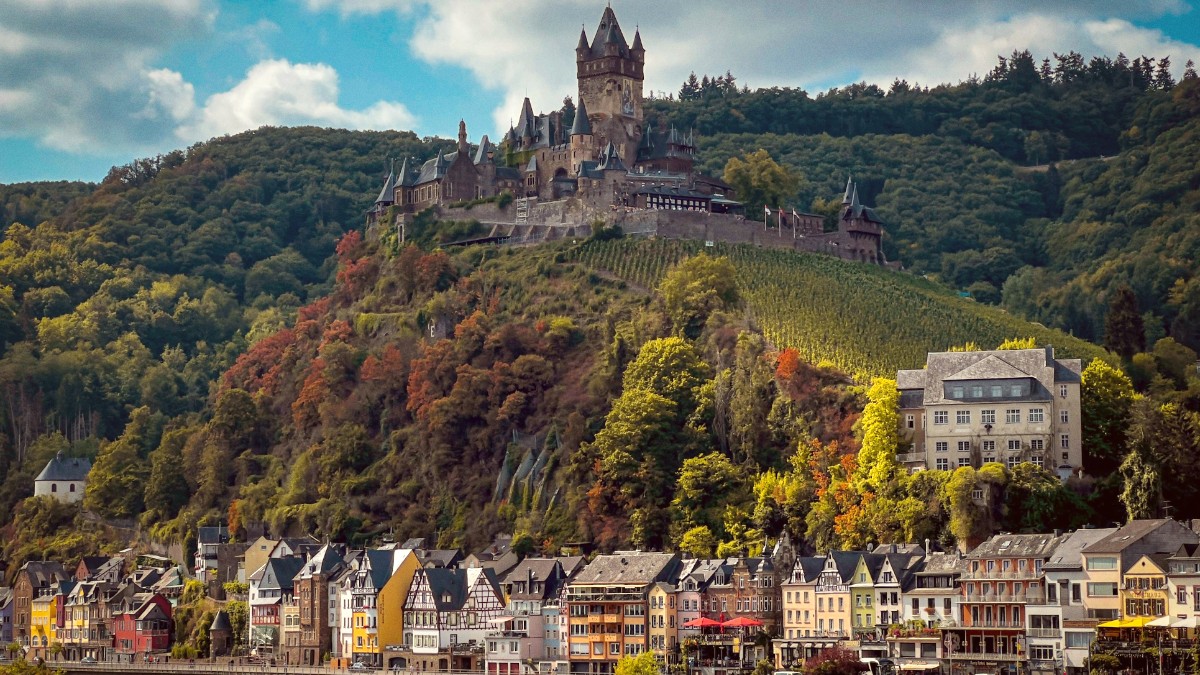
Rhineland Palatinate, Germany
Germany's main mobile providers include Telekom (T-Mobile), Vodafone, and O2. All maintain good coverage throughout the Rhine Valley.
Wi-Fi is widely available in hotels, guesthouses, cafes, and restaurants. Free Wi-Fi is often available in public spaces like train stations and airports.
Deutsche Post is Germany's national postal service. Yellow post offices (Postamt) are found in most towns.
The official language is German. English is widely spoken in tourist areas, hotels, larger restaurants, and among younger generations.
While English is common, local residents appreciate even a few German phrases.
Retail shops generally open Mon-Sat, 9/10 AM to 6/8 PM. Supermarkets extend to 9/10 PM. Most shops close on Sundays (exceptions: bakeries, train station shops, gas stations).
Restaurants serve lunch (12-2 PM) and dinner (6-10 PM+), often closing between. Cafes typically open morning until late afternoon/early evening.
Museums/attractions usually 10 AM-5/6 PM, often closed Mondays. Banks typically Mon-Fri, 9 AM-4 PM. ATMs are widely available 24/7.
Germany observes several public holidays, some regional. Common ones: Easter Monday, May 1st (Labor Day), Ascension Day, Whit Monday, German Unity Day (Oct 3rd), Christmas holidays.
Many castles, boat tour operators (like KD Line), and some smaller attractions reduce hours or close entirely during the low season (November to March), excluding the Christmas market period.
Always check specific opening hours and public holidays for the duration of your visit to avoid surprises, especially for popular attractions.
A firm handshake is common when meeting and parting, especially in formal settings or with new acquaintances. Use "Guten Tag" (Good day) for most situations. "Hallo" (Hello) is more informal.
Casual attire is generally suitable. Smart casual dress is appreciated in nicer restaurants or for evening outings. For religious sites, dressing respectfully with covered shoulders and knees is helpful.
Photography is generally permissible in public areas. Always ask for permission before photographing individuals, especially children. Look for signs at museums or private attractions that prohibit flash or all photography.
Germany is generally liberal and accepting of LGBTQ+ individuals. Major cities like Mainz and Koblenz have active LGBTQ+ communities. The country has strong anti-discrimination laws.
Contact local tourist information offices (Koblenz, Mainz, Rüdesheim) for specific accessibility details. The Deutsche Bahn (DB) website offers comprehensive information for travelers with reduced mobility.